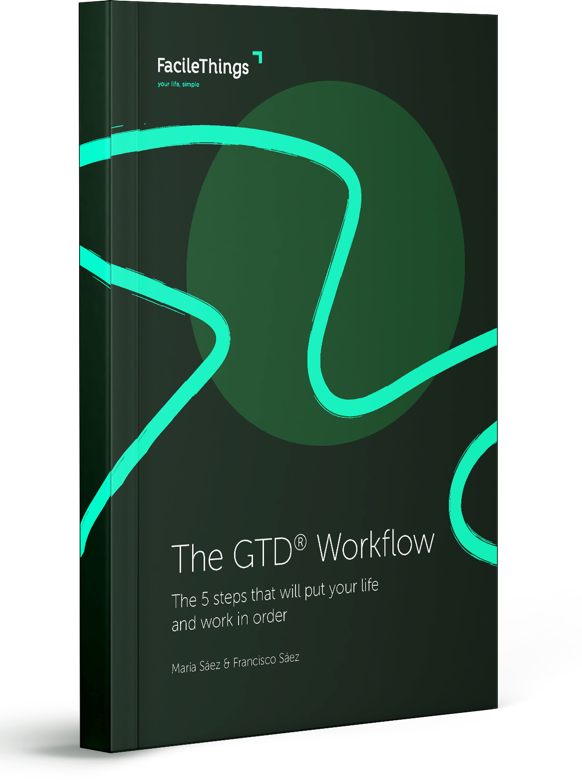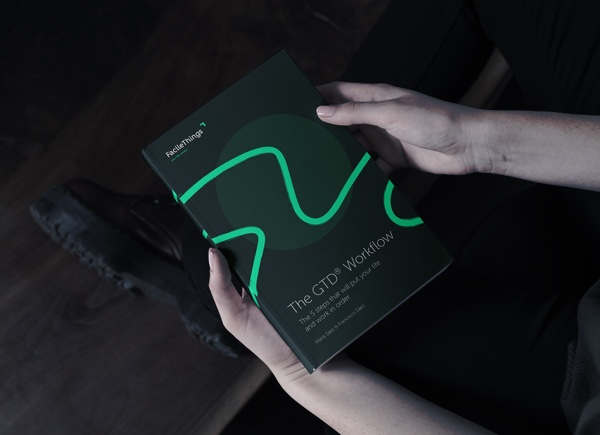Personal Productivity
Closing Doors Is Key to Your Productivity
AUTHOR: Francisco Sáez“Sometimes we stare so long at a door that is closing that we see too late the one that is open.” ~ Alexander Graham Bell

I read many books. Before buying a book related to technology, economy, business, personal development etc., I usually read sufficient reviews and recommendations so that I don’t make a mistake when picking the next book to read. However, I don’t do the same thing with fictions books, mainly because I usually don’t like what most people like.
When I don’t have a reference—unless I know the author—, it sometimes happens that the novel I pick turns out to be not as good as I thought. Some years ago, I wasn’t capable of abandoning a novel without finishing it (even if it was a pain in the ass), just because of the fact I chose it and bought it, as if I had to be true to my own decision. Thus, I continued reading it, slowly, not willing to, agonizing, until I reached the word “end” after ages.
This kind of behavior, that is related to loss aversion (I wrote about it here), is very common in many levels. According to a study done by Jiwoong Shin y Dan Ariely, professors of Psychology, most of the times we make decisions that allow us to continue having available an option, instead of because of the value that option gives us.
This is why we have many things to read about, to see and to do, we are surrounded by people that just consume our energy, and we have a bunch of pending projects, many of them without a clear purpose anymore. We do whatever to keep open the greatest amount of possibilities. It takes a great effort to definitely close a door, even when it makes us waste our time, doesn’t take us anywhere and is annoying.
No need to say that this behavior is completely unproductive. Imagine all you could do if you got rid of all this useless options. Moreover, imagine how relaxed you would be if suddenly many unnecessary concerns disappeared.
In spite of all the irrational of the matter, over and over again all fronts remain open. Why? According to Shin and Ariely, because we believe it is free. We aren’t able to easily see the cost of keeping each front open, even if it’s one that only consumes our energy and time, without producing anything in return.
Do you want to be really productive? Close some doors. Start to shut down all those matters you have open only by inertia. It’s not only about saying no to others so you can focus in what really interests you, you also have to be able to say it to yourself.
Clarify which things are important to you and which other things you are not going to pursue. When new chances appear, big or small, accept them or avoid them according to that criteria.
It is now clear to me that I read to learn new things or to amuse myself. If a book doesn’t meet any of these criteria, I don’t waste my time with it. As soon as I realize I don’t enjoy it I put it aside, out of my sight, so that I can make better use of that time by reading something more interesting or doing something else.





3 comments
The topic covered in this article is a difficult one. Mostly because it deals with an individual's sense of what is important, which is largely subjective. For example, an individual's system of rating a task to be of great importance or little importance is largely based on a scale that defines values using criteria only appreciated by the individual. If someone gives me a "HIGH PRIORITY" item, the first thing I ask is "Oh, really? Why is it high priority?" Note that I do not agree with the initial level of importance. What's hot to some is mild to others.
What works for me, from my own subjective point of view, is the following:
o A weekly review where I glance over every item I have and determine if it should be promoted (scheduled), maintained (leave as a "Next Action" and adjusted in the list), flagged (dropped to "Sometime/Maybe"), or removed (deleted). Items in my Sometime/Maybe list are frequently moved up and down in priority and adjusted. Next Action often remain but also become stale and moved. Prioritized items are always done, allowing me to promote Next Actions and move forward. The Weekly Review available from FT is one of the best I have ever seen. It was, in many respects, the biggest reason I became a paying user.
o A monthly review of my goals to make certain I am working on what I need to and want to. I will often revise goals, add new goals, and remove old ones, keeping my sights on what is important and exciting. I look forward to FT having some sort of Goal review in the future.
o A daily review of my scheduled tasks so I know what I need to work on first and what comes second. A guided Daily review would be handy, as well.
It seems to me that it is not so much a question of closing doors, but being able to keep your hands free to turn knobs and your head clear to recognize opportunities.
The topic covered in this article is a difficult one. Mostly because it deals with an individual's sense of what is important, which is largely subjective. For example, an individual's system of rating a task to be of great importance or little importance is largely based on a scale that defines values using criteria only appreciated by the individual. If someone gives me a "HIGH PRIORITY" item, the first thing I ask is "Oh, really? Why is it high priority?" Note that I do not agree with the initial level of importance. What's hot to some is mild to others.
What works for me, from my own subjective point of view, is the following:
o A weekly review where I glance over every item I have and determine if it should be promoted (scheduled), maintained (leave as a "Next Action" and adjusted in the list), flagged (dropped to "Sometime/Maybe"), or removed (deleted). Items in my Sometime/Maybe list are frequently moved up and down in priority and adjusted. Next Action often remain but also become stale and moved. Prioritized items are always done, allowing me to promote Next Actions and move forward. The Weekly Review available from FT is one of the best I have ever seen. It was, in many respects, the biggest reason I became a paying user.
o A monthly review of my goals to make certain I am working on what I need to and want to. I will often revise goals, add new goals, and remove old ones, keeping my sights on what is important and exciting. I look forward to FT having some sort of Goal review in the future.
o A daily review of my scheduled tasks so I know what I need to work on first and what comes second. A guided Daily review would be handy, as well.
It seems to me that it is not so much a question of closing doors, but being able to keep your hands free to turn knobs and your head clear to recognize opportunities.
Hi Cyrus,
I think that if you have a clear scale of priorities in your life, you probably won't need to close any doors because you did not open the wrong ones.
As you say, what's important to an individual is very subjective. Not only subjective, but most of times biased. The point I want to make is that sometimes that subjectivity deceives us, and we make bad decisions. Bad decisions that we can correct ;)
As always, thanks for sharing your thoughts
!
Hi Cyrus,
I think that if you have a clear scale of priorities in your life, you probably won't need to close any doors because you did not open the wrong ones.
As you say, what's important to an individual is very subjective. Not only subjective, but most of times biased. The point I want to make is that sometimes that subjectivity deceives us, and we make bad decisions. Bad decisions that we can correct ;)
As always, thanks for sharing your thoughts
!
Love the read (been there, done that) as well as the comments by Cyrus!
Thanks both for your input/review/thoughts!
Love the read (been there, done that) as well as the comments by Cyrus!
Thanks both for your input/review/thoughts!